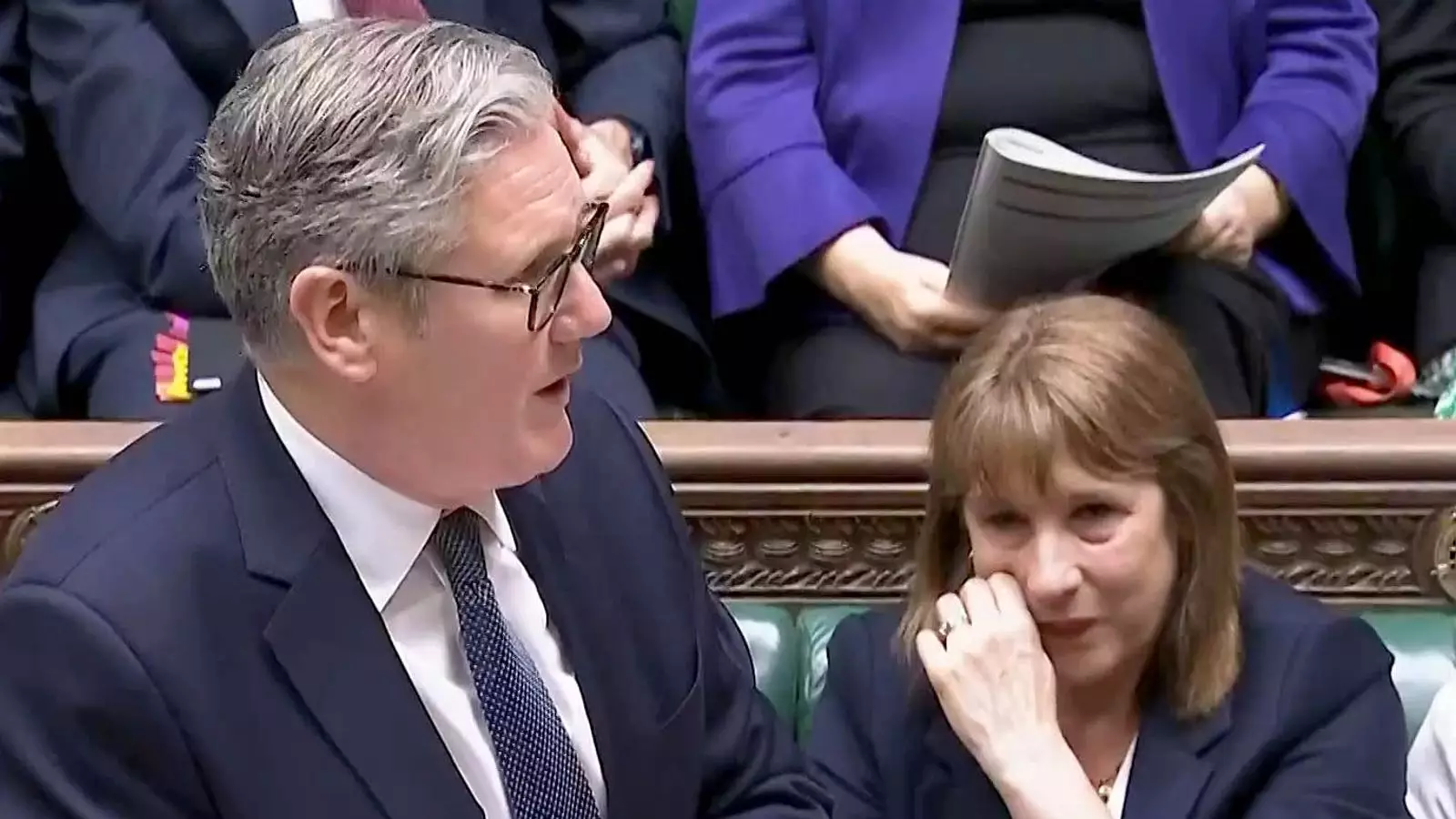The political arena in the United Kingdom is currently marked by an undercurrent of dissatisfaction, especially within the Labour Party. Senior MPs and influential figures are voicing concerns that the current leadership may face a tumultuous end if circumstances don’t shift favorably. This volatility stems from a mixture of electoral challenges, dwindling public confidence, and internal upheaval. The rumors suggest that if Labour’s performance in upcoming local and national elections continues to falter, the leadership’s stability could be compromised. Such whispers are not just idle gossip—they highlight the fragile nature of political power in a rapidly changing environment.
These internal concerns are compounded by the growing popularity of alternative parties like Reform UK and the resurgence of Greens in London. Citizens’ shifting political loyalties indicate a broader dissatisfaction with mainstream choices, which in turn places additional pressure on the establishment. The threat isn’t solely about losing votes but about losing relevance and credibility. When voter support wanes, political leaders often become scapegoats for systemic failures beyond their control. Still, the perception that leadership may have run its course contributes to an atmosphere of doubt and insecurity that no amount of strategic messaging can easily quell.
Furthermore, the character and resilience of leadership are being tested through recent high-profile setbacks. The Prime Minister’s unwavering support for key ministers, especially Rachel Reeves, is being scrutinized amid personal and political turmoil. Reeves’s emotional appearance during Prime Minister’s Questions—attributed to a personal matter—has been weaponized by opposition and critics, exacerbating fears about internal stability. While her colleagues emphasize her professional competence and longevity, the public’s perception of vulnerability can swiftly erode confidence in political leadership. This raises the uncomfortable question: how long can a leader preserve authority when personal struggles become a national spectacle?
Policy Failures and Political Risks Widen the Divide
A crucial aspect of this turbulent climate is the recent contentious legislation and its repercussions. The passage of a controversial welfare bill, despite a significant rebellion within the Labour ranks, underscores how internal dissent is undermining party unity. The bill’s passage was marred by U-turns, creating a financial black hole estimated at over £5 billion. Such financial miscalculations not only threaten economic stability but also fuel public skepticism towards competence and integrity. When a government appears to stumble through policy amidst internal discord, it fosters a sense of chaos that voters are increasingly unwilling to overlook.
Leadership’s handling of these crises reveals a disturbing disconnect: on the one hand, Prime Minister and Chancellor portray a united front, emphasizing camaraderie and shared vision. Yet, behind the scenes, the cracks widen, and the veneer of unity begins to crack. The close political alliance between Reeves and the Prime Minister suggests strategic cohesion, but fragile alliances are often the most vulnerable in tough times. As market reactions reflect investor anxiety—evidenced by falls in the pound and bond prices—the stability of the government appears more fragile than ever.
This scenario invites a critical question: are these policy missteps indicative of deeper systemic issues, or merely temporary setbacks? My belief leans toward the former. When governments are plagued by internal discord, inconsistent messaging, and financial misjudgments, their long-term credibility suffers. Without genuine reform and introspection, the political class risks alienating even the most loyal supporters. The pattern of failed policies and leadership instability signals a government at a crossroads, teetering on the brink of significant change.
The Public’s Voice and the Future of Leadership
The ultimate arbiter of political fate remains the electorate. Recent polls reveal a stark reality: only a quarter of the public believe Keir Starmer can secure victory in the next general election. The disconnect between political insiders’ optimism and public sentiment underscores an urgent need for authentic, effective leadership. A party and leader who fail to inspire trust and demonstrate competence risk becoming irrelevant. This discouraging statistic acts as a wake-up call—if Labour cannot convincingly project stability and vision, it may face irreparable damage.
Simultaneously, the internal struggles within the ruling government set a dangerous precedent for future governance. The emotional toll on ministers like Reeves highlights the personal costs of political life, yet it also exposes the human vulnerabilities that often go unnoticed. Leaders must balance resilience with authenticity—walking the fine line between strength and vulnerability. The public’s perception of leadership integrity may well hinge on how well these personal elements are managed during turbulent times.
As the political landscape evolves, the spotlight will intensify on whether leadership can adapt, unify, and deliver results under pressure. The current trajectory suggests a period of upheaval and uncertainty, with the potential for significant shifts in power. Leaders who acknowledge their internal challenges, yet remain committed to transformative change, could position themselves as architects of renewal. Conversely, those entrenched in internal conflict and policy failures may find their careers truncated by the political winds of change.

Leave a Reply